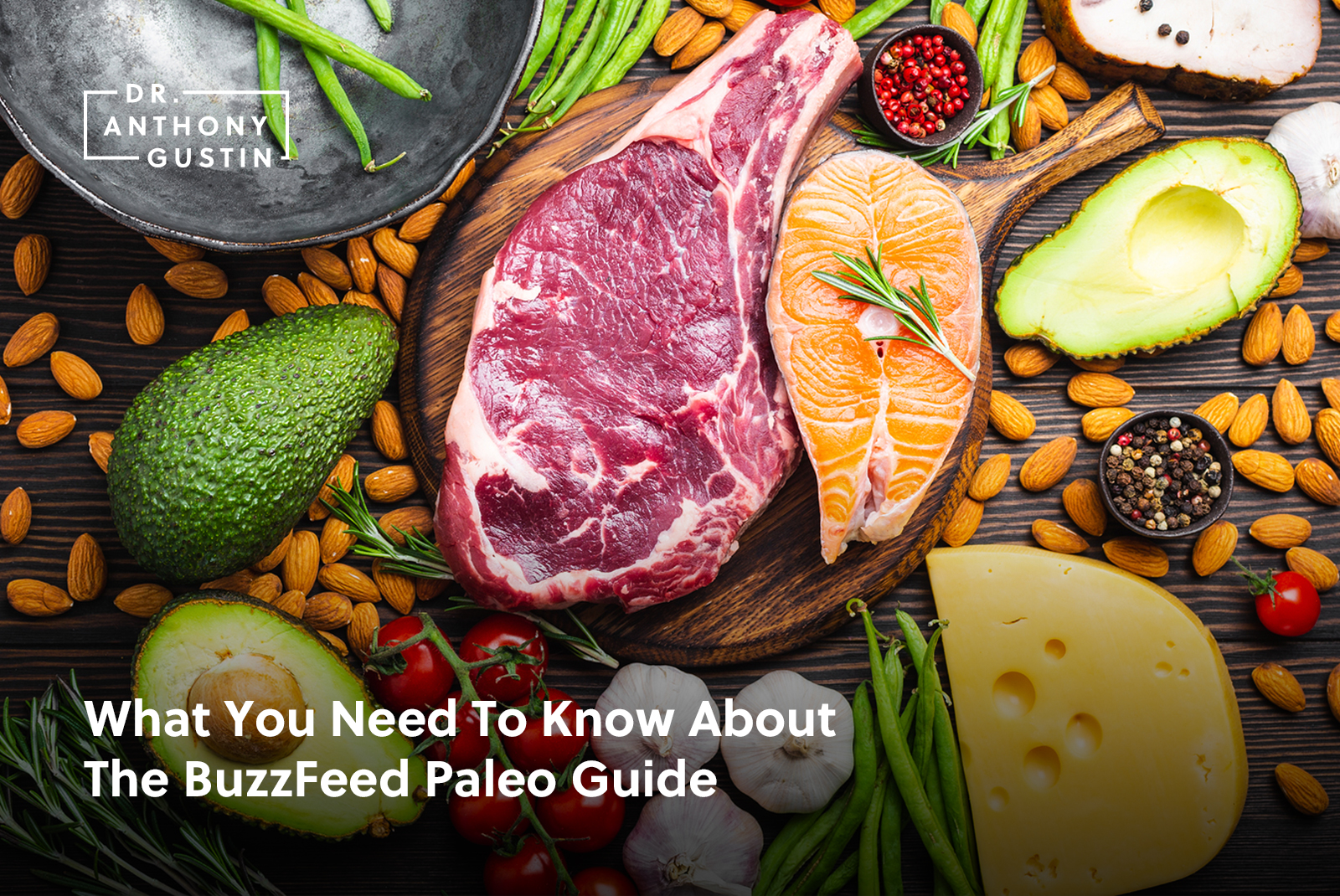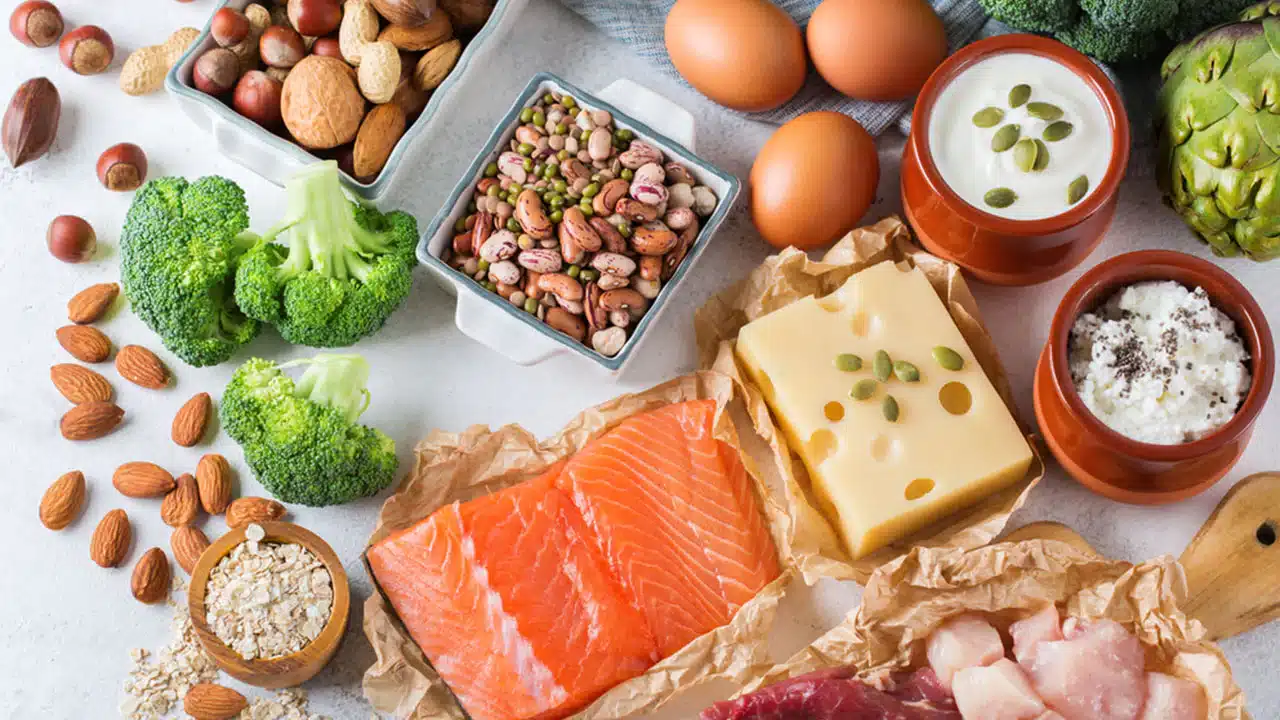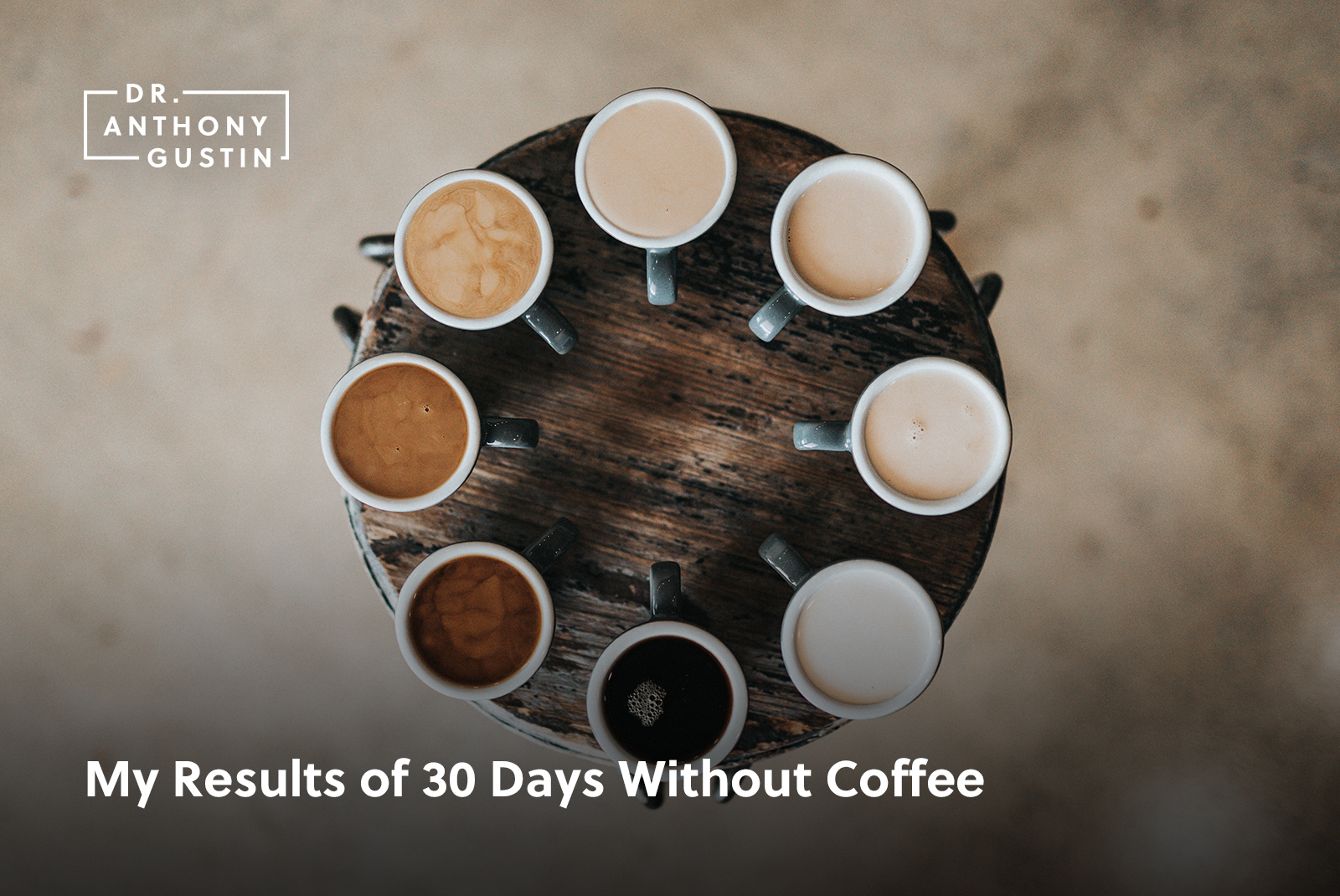What You Need To Know About The BuzzFeed Paleo Guide

The popular site, BuzzFeed, wrote a pretty great guide on getting started with the paleo diet in the New Year. The guide has a lot of fantastic information for people trying to make positive changes. However, there are some items in the article that I think could use a little help for paleo newbies. Here are my top additions and modifications to the BuzzFeed Paleo Guide.
The BuzzFeed Paleo Guide “Yes” and “No” Foods List
There are 15 allowed foods/food groups on the BuzzFeed Paleo Guide. The list is very simple and helpful to someone new to the diet. Unfortunately, two of the fifteen are honey and maple syrup. Honey and maple syrup are different words for the same thing – sugar. You’ll note that “refined sugars” are on the not to eat list. Your body doesn’t process honey and maple sugar any differently from a metabolic standpoint. If you remove sugar from your diet and replace it with sugar, you’re not going to reap all of the benefits you could otherwise. Honey and maple syrup are certainly better than high fructose corn syrup laden sweet treats, but I wouldn’t advise paleo newbies to get in the habit of making them staples.
Unrefined seed oils also makes the BuzzFeed Paleo Guide “yes” list. Unrefined seed oils include items like grapeseed oil and sunflower seed oil, which should be avoided. Unrefined seed oils are an extremely high source of omega-6 fatty acids, which wreak havoc on chronic inflammatory pathways when consumed in excess. Sunflower seed oil, a common unrefined seed oil is composed of up to 90% inflammatory omega-6 and omega-9 fatty acids. My recommendation is to move these to the no list to aim for a higher omega-3:omega:6 ratio in order to reap the best advantages of a properly done “paleo” diet.
Limiting Fat
The BuzzFeed Paleo Guide recommends watching portion sizes when switching to the paleo diet, especially for weight loss. I have found this to be a slippery slope with plenty of the patients I’ve seen in my private practice. If people are starting a diet like the paleo diet, and remove a lot of refined sugars and carbohydrates (grains), they need to replace that bulk with fat (especially if trying to reduce body fat), but they don’t. This leads to a hypocaloric state, the body doesn’t get what it needs, and you never get full resolution of hormone imbalances.
Nine times out of ten, my patients who report that paleo isn’t working for them simply aren’t eating enough, and not enough fat, typically. Calories, in my opinion, don’t really matter anyway. When you eat whatever you want from a truly “paleo” standpoint, you will have the hunger hormone, leptin, rebalance and not cause overeating. My recommendation is, if switching to a paleo diet for the first time, don’t worry about restricting portion sizes. My perspective isn’t exactly inconsistent with the BuzzFeed Paleo Guide, but rather a clarification based on misconceptions I’ve noticed. You shouldn’t be hungry on paleo.
Limiting Paleo Treats
The BuzzFeed Paleo Guide does a great job of pointing out that paleo “treats” should be limited. People often don’t grasp that they are still eating cookies, candy and cake, even if they are paleo. In my opinion, these items should be removed until you realize the treats typically have the same sugar content and therefore the same metabolic effect.
Paleo “treats” are better than regular treats in that they don’t come filled with artificial ingredients and gluten. But this doesn’t mean you should be recreating all your favorite desserts in paleo form and calling it a healthy lifestyle. It is better to smoke one pack of cigarettes per day than two, but none would be the best bet. Limit paleo “treats” to none in the beginning for better results.
Grass-fed vs Grain-fed Meat
The BuzzFeed Paleo Guide mentions that grass-fed beef is optimal, but you shouldn’t worry much about grain-fed beef. I would disagree. There is definitely a way to optimize this which we’ve highlighted into our guide Source Matters: A Paleo Guide To Buying Red Meat. The BuzzFeed Paleo Guide mentions only one shortcoming of grain-fed beef – toxins accumulate in the fatty acids, which are to be avoided.
But the article misses two important differences: nutrient density and inflammatory fats.
Essentially all of the beneficial nutrients found in grass-fed beef (CLA, vitamin A, vitamin K, beta-carotene) are absent in grain-fed meat. Yes, you are paying less, but you’re also getting less nutrients. Getting the proper spectrum of nutrients is key to regulating hormones, which is why a standard American diet is so terrible.
Omega-6 fatty acids are much increased in grain-fed cows as well. You can find more information in our article on sourcing meat. Just as we described earlier in avoiding seed oils, you generally want to avoid omega-6 fatty acids where possible. Your body needs a certain amount for cellular processes, but we typically get much more than enough.
Bottom line: Most good and bad comes in the fat. If you’re trying to save money, buy a mix of fattier cuts of grass-fed animal products and leaner cuts of grain-fed animal products.
Dried Fruit Snacking
The BuzzFeed Paleo Guide recommends dried fruit as a good snacking option. Dried fruit is not all that dissimilar to eating Swedish Fish. ¼ cup dried fruit has 25 grams of easily digestible carbohydrate. And most of us are lying if we say we’re stopping at ¼ cup of dried fruit. That easy digestion, mostly fructose, will bypass most normal processing and wreak havoc on blood sugar regulation.
Paleo is not low carb, but should be low glycemic. Quickly digesting carbs that completely destroy your metabolism and blood sugar regulation should be limited in favor of starchy nutrient dense carbs like sweet potatoes. Limit dried fruit (candy) snacking.
Encouraging cheat treats
The BuzzFeed Paleo Guide recommends having non-paleo cheat meals once a week. I think this is not a good idea. The negative effects of gluten on the gut lining, for instance, last up to about a week on average. The negative effects of omega-6 fatty acids can last up to two years as they get embedded in the cell walls. Read here for more reasons we think cheat meals are ridiculous.
Don’t get me wrong, there is A LOT of great information in the BuzzFeed Paleo Guide:
They recommend two different plans for different people. 30 days all or nothing (we have an all or nothing guide) or step by step intro (our 30 day guide).
They point out that paleo is not a low carb diet – which it isn’t. If you’re an athlete, especially doing high intensity exercise like CrossFit, make sure you’re getting adequate amount of starchy carbohydrates to support the demands of your activity.
Meal prepping is the key to success for people who are busy when switching to the paleo diet. Eating healthy requires more time in the kitchen, batch it out so you can save as much time as possible to make the best choices you can.
Eating out is easier than you think. Just order the meat and veggies, dry if possible, and do the best you can with what you have.
Don’t be obsessed with the scale. Many of the patients in my private practice lose a lot of body fat in the initial 30-60 days then weight loss seems to taper off. Well, what’s usually happening is they are still losing fat mass, but now starting to back on some more lean mass as well. Use the mirror test. Do you look better? Okay, great. Do you feel better? Perform better? Think quicker? All positive things that have nothing to do with a scale.
The BuzzFeed Paleo Guide also emphasizes the importance of sleep and I could not agree more. I would add that sleep quality is equally important. Check out our guide on sleeping for more information on that.
Ultimately, make the best choices as possible with the information you have and try to not get too overwhelmed. Check out our get started guides here and leave comments below if you have any questions.
Good luck on your New Years resolutions and Happy Holidays!




